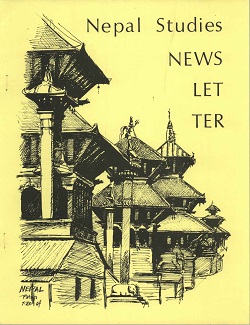Author Biography
Leigh Miller (Ph.D., Emory University, 2014) is an anthropologist of modern Tibet and essayist and curator of contemporary Tibetan art. She is the Director of Academic and Public Programs at Maitripa College, a Buddhist graduate school, where she also teaches in Portland, Oregon. Her dissertation, Contemporary Tibetan Art and Cultural Sustainability in Lhasa, Tibet examines independent artists’ contexts, practices and discourses in contemporary Lhasa to argue that art impacts cultural identity, representation, and transmission, and serves as a pioneering practice of cultural sustainability in post-Mao Lhasa.
Abstract
The artworks and career phases of the Lhasa contemporary artist Gadé illustrate the complex entanglement of religion and the secular in modern Lhasa, while illuminating broader trends in contemporary Tibetan art as a cultural formation of local mediation of modernity’s strong influences. While the past is vital to Gadé, he is driven to “locate traditional Tibetan art in a contemporary context” where it can also be “detached from religion,” raising questions about representations of Tibet and the cultural future. He takes a secular approach to the role of artists in society that, along with his cohorts in the emergent contemporary Tibetan art movement since the 1980s, overturns Tibetan (Buddhist) artistic conventions in favor of personal expression. In Gadé’s paintings and multimedia works from the 1990s to 2012, a collectively-recognized visual language derived from the symbols, styles, compositions, and materials of traditional Buddhist art is juxtaposed with the equally familiar icons of globalization to depict hybridity, in which the fragmented nature of his generations’ Buddhist inheritance shares space with the humorous and curious in urban Tibet. This new shared visual language can affirm deep connection to tradition, on the one hand, and distance or alienation from it on the other in its secular reconfiguration, yet it can also be viewed as reclaiming collective and personal agency in the midst of colonialism and globalization.
Acknowledgements
I cannot fully express my gratitude to Gadé for sharing so generously his artwork and friendship over the years. I am also grateful for Fulbright and Emory University funding that enabled the research that informs this study. The editors and reviewers of this article substantially improved it, although flaws of my own inevitably remain.
Creative Commons License

This work is licensed under a Creative Commons Attribution 4.0 License.
Recommended Citation
Miller, Leigh. 2016. The 'Look of Tibet' Without Religion: A Case Study in Contemporary Tibetan Art in Lhasa. HIMALAYA 36(1).
Available at:
https://digitalcommons.macalester.edu/himalaya/vol36/iss1/11


